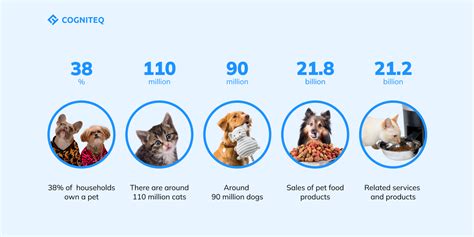Introduction

The health of our pets is paramount, and their gut health plays a vital role in their overall well-being. This article explores the intricate relationship between pet health and gut health, highlighting key findings and advancements.
Gut Health: The Foundation of Pet Well-being
The gut, a complex ecosystem housing trillions of microorganisms, is central to pet health. These microorganisms, known as the gut microbiome, perform crucial functions that influence:
- Immune function: Gut microbes produce short-chain fatty acids (SCFAs) that boost immunity and reduce inflammation.
- Nutrient absorption: Microbes break down complex nutrients, making them available for absorption.
- Hormonal balance: The gut microbiome influences the production of hormones that regulate appetite, mood, and metabolism.
- Protection against disease: Gut microbes compete with pathogens, preventing infection.
Factors Affecting Gut Health in Pets
Several factors can impact gut health in pets:
- Diet: A balanced diet rich in fiber, probiotics, and prebiotics nourishes gut microbes.
- Stress: Stress can disrupt the gut microbiome, reducing its diversity.
- Medication: Antibiotics and other medications can kill beneficial gut bacteria.
- Age: As pets age, their gut microbiome changes, leading to decreased diversity and potential health issues.
Diagnosing and Managing Gut Health Issues
Veterinarians use various diagnostic tools to assess gut health, including:
- Fecal testing: Stool samples can reveal imbalances in the gut microbiome.
- Histopathology: Biopsies of the digestive tract can identify inflammation or other abnormalities.
- Endoscopy: A minimally invasive procedure that allows direct visualization of the digestive tract.
Treatment options for gut health issues depend on the underlying cause and may include:
- Dietary changes: Adjusting the pet’s diet to promote gut health.
- Probiotics and prebiotics: Supplements that replenish beneficial gut bacteria.
- Medication: Antibiotics or antifungal drugs to treat infections.
- Surgery: In severe cases, surgery may be necessary to address structural issues.
Advancements in Gut Health Research for Pets
Recent advancements in gut health research have led to innovative strategies for pet care:
- Personalized nutrition: Precision diets tailored to individual pets’ gut microbiome profiles.
- Fecal microbiota transplantation (FMT): Transferring healthy gut microbes from a donor animal to restore microbiome balance.
- Microbiome-based therapeutics: Novel medications designed to modulate the gut microbiome and treat diseases.
Case Study: The Benefits of Probiotics in Pets
Research has shown that probiotics, live beneficial bacteria, can significantly improve gut health in pets:
- A study on dogs with inflammatory bowel disease showed that probiotic supplementation reduced clinical signs and improved stool quality.
- Another study on cats with urinary tract infections found that probiotics reduced bacteria levels in the urine and improved urinary health.
FAQs
Q: How often should I take my pet to the vet for gut health checks?
A: Consult with your veterinarian for recommended check-up intervals based on your pet’s age and health status.
Q: Can I give my pet human probiotics?
A: No, human probiotics are not suitable for pets. Consult with your veterinarian for pet-specific probiotics.
Q: What are signs of poor gut health in my pet?
A: Common symptoms include digestive issues (e.g., diarrhea, vomiting), lethargy, and changes in appetite or behavior.
Q: How can I prevent gut health problems in my pet?
A: Provide a healthy diet, minimize stress, and consider regular probiotic supplementation.
Strategies for Maintaining Optimal Gut Health in Pets
- Feed a balanced diet: Choose high-quality pet food rich in fiber, probiotics, and prebiotics.
- Reduce stress: Provide a calm and comfortable environment for your pet, and minimize exposure to stressful situations.
- Use probiotics and prebiotics: Supplement your pet’s diet with probiotics and prebiotics to enhance gut health.
- Consider fecal microbiota transplantation: Consult with your veterinarian about this procedure to restore microbiome balance in cases of severe gut health issues.
- Monitor your pet for gut health problems: Regularly observe your pet for signs of digestive issues or changes in behavior.
Conclusion
Pet health and gut health are inextricably linked, and maintaining a healthy gut ecosystem is essential for a pet’s well-being. By understanding the impact of gut health on overall health, pet owners and veterinarians can work together to implement proactive strategies for optimal pet care in 2025 and beyond.
Table 1: Effects of Gut Microbiome Imbalance on Pet Health
| Imbalance | Health Effects |
|---|---|
| Reduced microbial diversity | Increased susceptibility to infections and immune disorders |
| Dysbiosis (disruption in microbial balance) | Digestive issues, allergies, and skin problems |
| Overgrowth of pathogenic bacteria | Infections, diarrhea, and vomiting |
Table 2: Factors Impacting Gut Health in Pets
| Factor | Impact |
|---|---|
| Diet | Nourishes gut microbes |
| Stress | Disrupts gut microbiome |
| Medication | Kills beneficial gut bacteria |
| Age | Alters gut microbiome composition |
| Genetics | Influences gut microbiome diversity and function |
Table 3: Diagnostic Tests for Gut Health Assessment
| Test | Purpose |
|---|---|
| Fecal testing | Analyzes stool samples for microbial imbalances |
| Histopathology | Examines tissue samples for inflammation or abnormalities |
| Endoscopy | Visualizes the digestive tract using a camera |
| Blood tests | Assesses overall health and identifies markers of inflammation |
Table 4: Advancements in Gut Health Research for Pets
| Advancement | Benefits |
|---|---|
| Personalized nutrition | Tailored diets to improve gut health |
| Fecal microbiota transplantation (FMT) | Restores microbiome balance |
| Microbiome-based therapeutics | Novel medications to modulate the gut microbiome |
| Microbiome-based diagnostics | Identifies gut health issues and guides treatment |





















